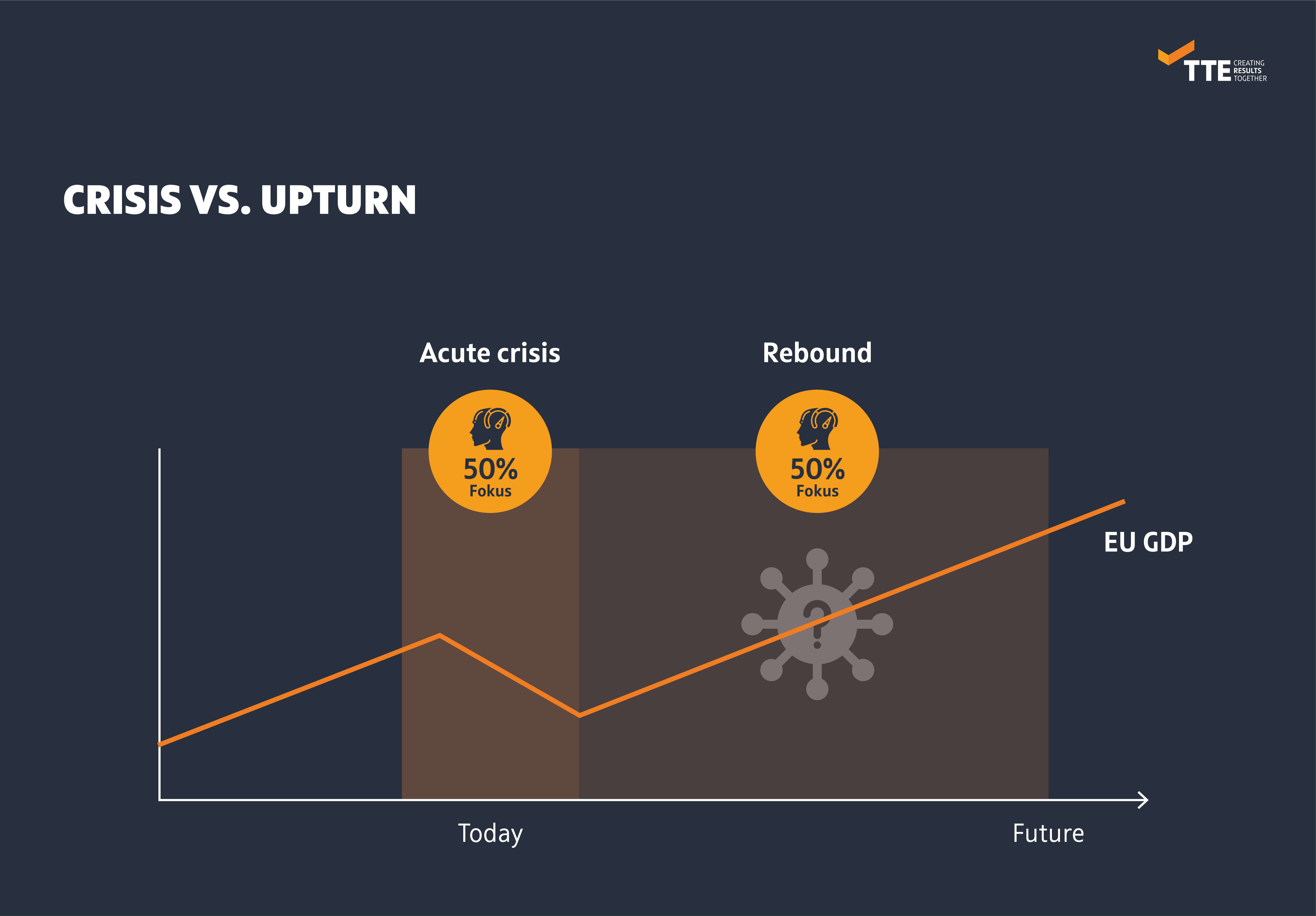
Take a quick look at your diary. It’s likely that most of the appointments revolve around current sales figures, hygiene measures or existing gaps in your supply chain. In other words, about current issues caused by the coronavirus crisis.
You’re not alone in this. Companies across the globe are struggling with aggravated market conditions and dwindling sales. The Federation of German Industries (BDI) expects economic output to fall by up to 3%. By way of comparison, this figure was 1.7% after the financial crisis in 2009.
We find ourselves in the middle of a worrying economic downturn and it seems obvious to focus your attention exclusively on current events. However, this could turn out to be a mistake. While you are busy ensuring the survival of your company from day to day, the signs of a new era, the post-coronavirus age, are mounting.
Those who are already preparing for this will be able to take the appropriate steps at the right time. What’s more, you will be ahead in the race for the market shares of the future.

Remain sceptical if consultants or institutions give very precise details of what your industry can expect in the coming weeks and months. Put simply, nobody knows. All predictions are based on mere speculation.
The original definition of crisis reveals a trend: there is always a “before” and “after”. Every crisis eventually comes to an end and then life continues. Since a crisis marks the bottoming-out of a development, things usually go upwards thereafter. It is good to keep this in mind from time to time.
This is also speculation, but it’s one for which there’s much to be said: companies will have to restructure themselves in order to offer added value to customers in the post-coronavirus world. It’s quite possible that your business model will no longer be 100% suitable and you’ll have to adapt it.
Let’s take a current example: Netflix, Amazon Prime Video & Co. are experiencing a huge influx of users. In addition, the number of people watching state-funded and private TV channels has also increased. The question arises as to which consumer behavior will prevail after the crisis. If current experiences give former TV viewers the pleasure of ad-free streaming, TV channels will lose an important advertising target group and thus a decisive source of income. Accordingly, TV channels will have to adapt their strategy in the future in order to continue reaching their advertising target group.
How the crisis is challenging your commercial function
→ Strategy: Your previous business strategies no longer work
→ Market monitoring: Past predictions have become obsolete; companies are acting blindly
→ Resources: Unstable markets require flexible planning
→ Sales channels: Former sales channels have been disrupted

Why is it that some companies are able to seize opportunities quickly, while others are rather slow to act? The reason for this is the successful interaction of different processes within the company, also known as commercial excellence. In our experience, this can be seen in eight characteristics that apply irrespective of a crisis:
A company set up in this way can adapt more easily to the new normality. The more of these criteria your organization meets, the more likely it is to succeed.
You are currently in the eye of the storm. However, this does not mean you have to wait for the storm to pass. These measures will help you to identify and prepare for future opportunities:
Developing a meaningful strategy is facilitated by valid data. Stay close to the market, keep up to date with proactive monitoring and never miss a new development. The results provide the basis for strategic and operational decisions and help drive innovation.
You can develop market forecasts based on your regular observation of the market. It’s the task of the strategy department to use these forecasts to develop possible scenarios for the future. This enables you to react to changes in the market in good time and in the best possible way as well as to introduce measures within the organization.
Bid farewell to the idea of pursuing a fixed strategy during the crisis. Your strategic planning is an agile process that is geared to an evolving market situation.
Our team of experts is more than happy to support you in this challenge as part of our Commercial Crisis Control Sprints. Evaluate the commercial maturity of your organization together with us and identify areas that require action. Does this sound interesting to you? Get in touch for further information.


TTE Strategy